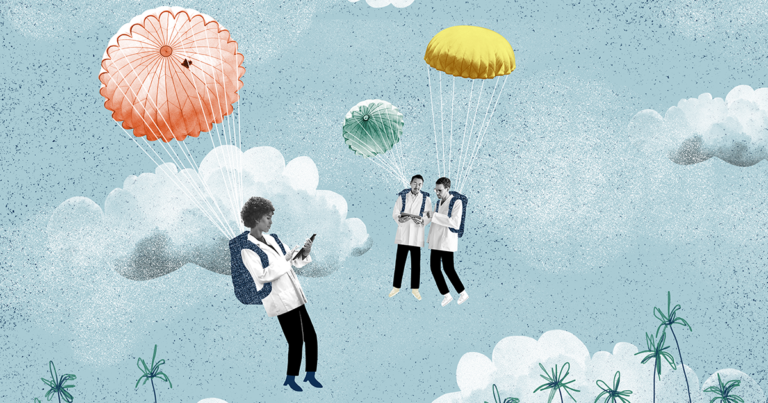The onus is often on researchers from high-income countries to start these conversations. Indeed, because of the skewed power dynamics, their collaborators may not feel comfortable voicing a critique or raising questions.
Lauren Franz, associate professor of psychiatry and behavioral sciences and global health at Duke University, notes that scientists from high-income countries can also do self-checks by looking at where their global south colleagues are included as authors on publications and provide opportunities for first authorship. They can also interrogate their findings’ local relevance, impact and potential implementation.
Franz, who has led projects tailoring early autism interventions in Africa, does not see these steps as uniquely important to parachute research or global health. “I think this is just good research practice,” she says.
As an added corrective, many researchers from high-income countries are investing in capacity building, which involves both training scientists and working with institutions to develop relevant research programs and infrastructure. The latter step, Franz notes, is crucial. “You can train people, but if the university doesn’t see the work that’s done in autism research as a priority, people won’t have jobs in academia at the end of the day.”
G
rantmakers and journal editors can also take steps to increase opportunity and equity for researchers in the global south. Franz, for instance, receives support from the U.S. National Institutes of Health’s “global brain” funding mechanism, which stipulates that grants include a capacity-building element and that recipients report on this aspect of their project.
Building capacity is also baked into Divan’s 7 million pound ($9 million) grant from the U.K. National Institute for Health and Care Research to develop evidence-based universal health coverage for autistic children across India, Sri Lanka and Nepal. By 2027, when that project is finished, it will have trained four Ph.D.s and six master’s students across the three countries where the study is being conducted, Divan says. “I think it’s going to be amazing.”
As for addressing equity at journals, Divan and Hoekstra helped show the way in the special issue of Autism they guest edited. For example, to be considered for inclusion, papers had to have authors from the country where the research was conducted. To the delight of Divan, Hoekstra and the other guest editors, the journal has since adopted that requirement into its guidelines. The journal is also piloting a free language-editing service—first developed for the special issue—to improve the readability and clarity of manuscripts that would otherwise be rejected prior to peer review on the grounds of style and language.
But there is only so much that can be done at the publishing stage, says David Amaral, professor of psychiatry and behavioral sciences at the University of California, Davis, and editor-in-chief of Autism Research, the journal of the International Society for Autism Research (INSAR). He says the journal has seen a significant increase in paper submissions from low- and middle-income authors.
“Thirty percent of our papers now come from China,” he says. But many are rejected before getting to the review stage, usually because the language is so rough it makes understanding the science difficult, or because of flaws in the study design.
Amaral has been discussing this hurdle with members of INSAR. One idea, he says, is for the society to create a sounding board to advise researchers from low-resource countries on crucial design aspects, such as whether their study has enough participants to reliably answer the question posed.
It could also let authors submit early drafts of their papers for review. “I think getting in at an earlier stage could promote better science,” he says.
I
mproving the science is the ultimate goal, Hoekstra and Franz say. This is not just a matter of learning to share the stage but of bringing in other perspectives to protect the integrity of the research and to make sure it is fit for its chief purpose: understanding the needs of people living with autism wherever in the world they may be and designing interventions that will help them.
This article was originally published by a www.thetransmitter.org . Read the Original article here. .



